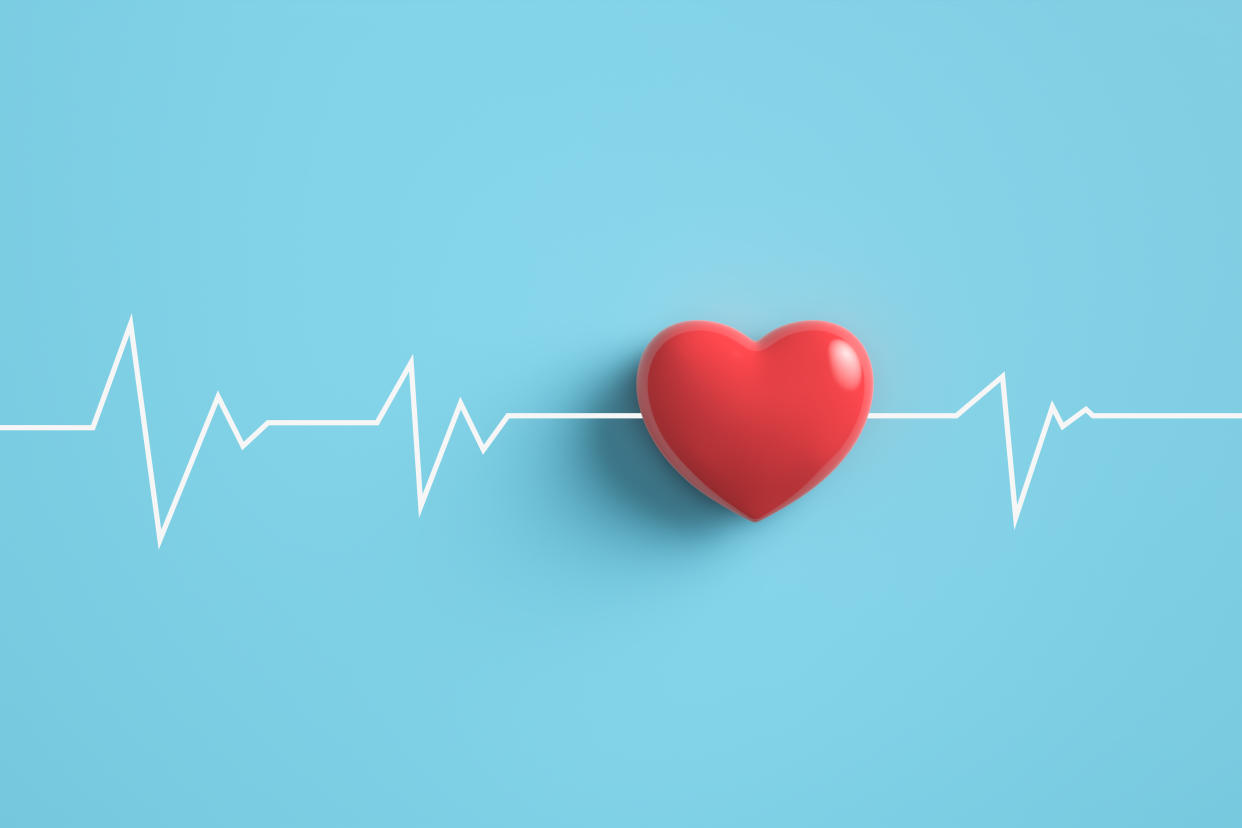How sex affects your heart health

Sex can provide a whole host of health benefits, from boosting our mood to enhancing our sleep. But did you know it can improve our cardiovascular health too?
While you might be familiar with a fluttering heart ahead of Valentine's Day, you might be less aware of the very real physical impacts your heart can benefit from in the bedroom.
So, how exactly does sex affect our heart and how often do we need to be having it to reap the rewards? Spoiler, this doesn't only apply to those with regular partners.
How sex impacts cardiovascular health

"The connection between sex and heart health is multifaceted and particularly relevant in the UK, where nearly 170,000 lives are claimed by heart disease each year," says intimacy expert and owner of wellness brand Miracle Leaf, Agnieszka Kozlowska.
"Sex can have a significant impact on both short-term and long-term cardiovascular health. In the immediate sense, sex is a form of exercise that can provide benefits such as increased heart rate and improved blood circulation, similar to brisk walking or cycling. Studies have suggested that individuals who engage in regular sexual activity tend to have lower risks of cardiovascular issues such as heart attacks and strokes."
Sex also releases beneficial hormones like endorphins and oxytocin. "These 'feel-good' chemicals reduce stress hormones like cortisol, which contribute to high blood pressure and other cardiovascular risks."
While sex isn't the answer to preventing all heart problems, it can certainly help.
Does how often you have sex matter?
Like with any exercise, the more consistently you do it, the better the benefits. But it's also how much you enjoy it that counts.
"Engaging in sexual activity frequently may offer more consistent benefits for heart health, similar to how regular exercise contributes to overall fitness. Research suggests that individuals who have sex more frequently tend to experience lower blood pressure and better stress management," says Kozlowska.
"However, quality matters more than quantity. A satisfying and stress-free sexual experience is likely more beneficial than a rushed encounter." So even if you're not having sex that much, every little counts (when it's good).
Kozlowska recommends prioritising pleasure as the main goal of sexual activity rather than performance or achieving specific outcomes.
What about for people with pre-existing heart conditions?
"Sexual activity is generally considered safe for most people; if you’re able to climb stairs or jog or walk a mile without difficulty, it’s generally safe for you to have sex. The possibility of having a heart attack during sexual activity is exceedingly low and shouldn’t scare you away," says Kozlowska.
"However, those with pre-existing heart conditions may need to take certain precautions and discuss concerns with their GP. They can assess your risk factors, prescribe medication, and advise on appropriate pacing and positions. It's important that those with heart conditions can recognise warning signs of potential complications, such as chest pain or discomfort, shortness of breath, dizziness, or fainting."
For more information, see the British Heart Foundation's guide on sex and heart conditions.
How can sex improve emotional wellbeing?

Other than the physical, intimacy can play a key role in both our heart health and overall wellbeing.
"The emotional intimacy and connection fostered through sex are crucial for our overall health. Sexual activity provides a healthy outlet for releasing tension and pent-up energy, helping to alleviate feelings of frustration and restlessness," says Kozlowska.
"Feeling loved, supported, and connected to your partner reduces stress and anxiety, both significant risk factors for heart disease. Additionally, healthy communication and conflict resolution within a relationship positively impact emotional and physical wellbeing."
Whether you're in a relationship or not, Kozlowska recommends: "Take care of yourself physically and emotionally to ensure you're in the right mindset for intimacy. Eat mindfully, exercise, and practice stress management to boost your confidence and wellbeing."
Consult your own doctor for personalised advice and support.
Read more on sex:
Romantic gestures and physical touch are best ways to initiate sex, study finds (Yahoo Life UK, 3-min read)
A quarter of Brits are having less sex than they used to. Here's how to boost your libido (Yahoo Life UK, 5-min read)
Sexual health doctor reveals the six questions you should ask a new partner (Yahoo Life UK, 6-min read)
Watch:Jane Seymour is boasting she is having the best sex of her life with her boyfriend John Zambetti


